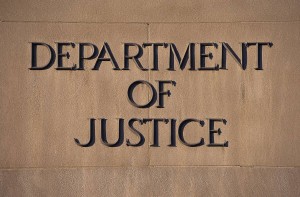Seven members of a Los Angeles-based fraud ring were sentenced for a scheme to fraudulently obtain more than $20 million in Paycheck Protection Program (PPP) and Economic Injury Disaster Loan (EIDL) COVID-19 relief funds.

On Monday, Judge Stephen V. Wilson of the U.S. District Court for the Central District of California sentenced Richard Ayvazyan, 43, to 17 years in prison; Marietta Terabelian, 37, to six years in prison; and Artur Ayvazyan, 41, to five years in prison, all of Encino, for engaging in the scheme.
Previously, Judge Wilson sentenced Manuk Grigoryan, 28, of Sun Valley, to six years in prison on Oct. 25; Edvard Paronyan, 41, of Granada Hills, to 30 months in prison on Sept. 27; Vahe Dadyan, 42, of Glendale, to one year and one day in prison on Oct. 18; and Arman Hayrapetyan, 39, of Glendale, to 10 months of probation on Oct. 18. Tamara Dadyan, 42, of Encino, is scheduled to be sentenced on Dec. 6.
 According to court documents and evidence presented at a June 2021 trial, the defendants used dozens of fake, stolen, or synthetic identities — including names belonging to elderly or deceased people and foreign exchange students who briefly visited the United States years ago and never returned — to submit fraudulent applications for approximately 150 PPP and EIDL loans.
According to court documents and evidence presented at a June 2021 trial, the defendants used dozens of fake, stolen, or synthetic identities — including names belonging to elderly or deceased people and foreign exchange students who briefly visited the United States years ago and never returned — to submit fraudulent applications for approximately 150 PPP and EIDL loans.
In support of the fraudulent loan applications, the defendants also submitted false and fictitious documents to lenders and the Small Business Administration (SBA), including fake identity documents, tax documents, and payroll records.
The defendants then used the fraudulently obtained funds as down payments on luxury homes in Tarzana, Glendale, and Palm Desert.
 They also used the funds to buy gold coins, diamonds, jewelry, luxury watches, fine imported furnishings, designer handbags, clothing, and a Harley-Davidson motorcycle. The conspirators sought to fraudulently obtain more than $20 million in COVID-19 relief funds.
They also used the funds to buy gold coins, diamonds, jewelry, luxury watches, fine imported furnishings, designer handbags, clothing, and a Harley-Davidson motorcycle. The conspirators sought to fraudulently obtain more than $20 million in COVID-19 relief funds.
“The defendants used the COVID-19 crisis to steal millions of dollars in much-needed government aid intended for people and businesses suffering from the economic effects of the worst pandemic in a century,” said U.S. Attorney Tracy L. Wilkison for the Central District of California. “These sentences reflect our office’s determination to root out and punish wrongdoers who use national emergencies to defraud the government and the American taxpayer.”
 “The defendants in this case flagrantly defrauded government aid programs at the expense of struggling small businesses, and then used the illicit funds on luxuries for themselves,” said Acting Assistant Director Jay Greenberg of the FBI’s Criminal Investigative Division.
“The defendants in this case flagrantly defrauded government aid programs at the expense of struggling small businesses, and then used the illicit funds on luxuries for themselves,” said Acting Assistant Director Jay Greenberg of the FBI’s Criminal Investigative Division.
“This criminal syndicate pilfered millions of dollars in COVID-19 relief funds that were intended to aid small businesses during this unprecedented pandemic,” said Special Agent in Charge Ryan L. Korner of the IRS-Criminal Investigation, Los Angeles Field Office. “When our nation was at its most vulnerable, these individuals thought only about lining their own pockets. These sentences reflect the seriousness of these crime. The IRS and our law enforcement partners will continue to pursue these deplorable frauds and put the perpetrators in prison where they belong.”
 Defendants Richard Ayvazyan, Terabelian, Artur Ayvazyan, and Vahe Dadyan were convicted after a jury trial on June 25. Prior to the verdict, Grigoryan pleaded guilty on June 7 to one count of bank fraud and one count of aggravated identity theft; Paronyan pleaded guilty on June 11 to one count of wire fraud; and Hayrapetyan pleaded guilty on June 21 to one count of conspiracy to commit money laundering.
Defendants Richard Ayvazyan, Terabelian, Artur Ayvazyan, and Vahe Dadyan were convicted after a jury trial on June 25. Prior to the verdict, Grigoryan pleaded guilty on June 7 to one count of bank fraud and one count of aggravated identity theft; Paronyan pleaded guilty on June 11 to one count of wire fraud; and Hayrapetyan pleaded guilty on June 21 to one count of conspiracy to commit money laundering.
Tamara Dadyan pleaded guilty on June 14 to one count of conspiracy to commit wire fraud and bank fraud, one count of conspiracy to commit money laundering, and one count of aggravated identity theft but has since moved to withdraw her plea.
That motion is still pending.
Richard Ayvazyan and Terabelian absconded prior to sentencing and were sentenced by Judge Wilson in absentia. They remain fugitives. The FBI is offering a reward of up to $20,000 for information leading to the arrest of Ayvazyan and Terabelian.

